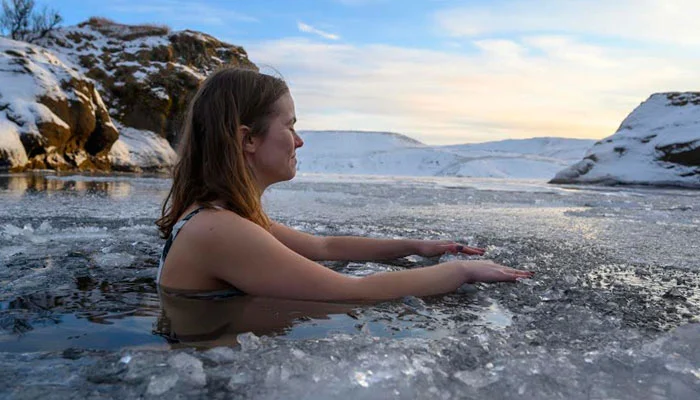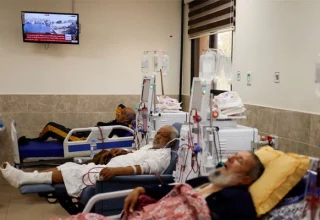Prominent celebrities and influencers are taking over the cold plunging trend, as ice baths are scientifically proven to be a beneficial exercise in order to tackle mental drain and energy deficiency.
Cold water immersion or ice baths have been used as regular exercise by athletes to recover from heavy training and stress.
Now, more people are trying this exercise to drain their stress conditions and lack of routine productivity.
The viral trend of cold plunging is being done by top celebrities and influencers, immersing themselves in the icy waters.
“It’s 8 in the morning. The pool is 58 degrees. Oooo baby,” actress Kristen Bell said in a post.
“I can’t feel my feet or my hands,” actor Zac Efron said in another post.
Cold is all the craze and it’s a trend sweeping the country.
“You have mental resilience at your fingertips. You have productivity, your focus, you have just like this euphoric sensation,” Shinjini Sur said.
“You get a bunch of energy,” Shelby Doner said.
“I definitely get this rush of, like, adrenaline and serotonin and dopamine,” Erin Stanczyk said.
On the other hand, there are also some potential risks of the icy exercise.
Exposure to extreme cold and heat has a significant impact on the human body, according to Professor Mike Tipton from the Extreme Environments Lab
“We do have some hypotheses as to how cold could work. Until the properly controlled studies are done, we can’t be sure,” Tipton said.
However, Tipton said overcoming the challenge of cold-water immersion may have some benefits.
“Cold water immersion evokes a fight or flight response,” Tipton said, “and part of that response is to release the stress hormones. So, absolutely, going into cold water and having a sudden fall in skin temperature and part of that cold shock response is going to wake you up.”
Although, he said there are potentially dangerous responses in the first 30 seconds.
Cold water sucks heat away five times faster than cold air. Skin temperature falls rapidly, causing an uncontrollable gasp. Hyperventilation stops blood flowing to the skin and increases blood pressure. This is known as the “cold shock response.”
“That cold shock response accounts for about 60 of people who die going into cold water,” Tipton said. “That’s particularly hazardous if you’re hypertensive if you’ve got an aneurysm [or] cardiovascular disease.”
Hands and feet are especially vulnerable to cold plunging, which shouldn’t last for more than 10 minutes.
Experts also said that water shouldn’t be colder than 59 degrees.
It’s advised that people with medical conditions check with their doctor before getting in cold plunging.





























